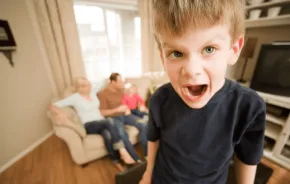
It’s not surprising to me that more than half the people in our world are bilingual, although I didn’t know only close to 20 percent of people in the United States are bilingual. With the number of bilingual people rising worldwide, researcher Cristina Crivello says it’s important to consider the benefits of bilingualism.
"Parents are hesitant to expose their child to more than one language," she says. "They hear it can make their child confused or cause a language delay." But that's a myth, says Crivello, a graduate student at Concordia University’s Centre for Research in Human Development in Montreal, a program supervised by established psychologist Dr. Diane Poulin-Dubois.
Crivello was lead researcher in a study recently published by the Journal of Experimental Child Psychology. The study showed children who are learning English and French are better at certain problem-solving tasks than children who are learning only one language.
In the study, researchers measured the vocabulary of English/French bilinguals and monolinguals at 24 months and 31 months. They also measured the children's selective attention, or their ability to focus on relevant information while ignoring distracting information, and the children's cognitive flexibility, or the ability to switch between two different tasks.
"For example, we had them put small blocks in the small bucket and big blocks in a big bucket," says Crivello. "We then switched the rules on them and asked them put the small blocks in the big bucket and big blocks in the small bucket."
The study compared the results of the bilingual children to the monolingual children and the bilingual children to each other.
"We looked at the relationship between the increase in their language skills from 24 to 31 months of age and their performance on tests," says Crivello. "We also measured the bilingual children's doublets, which is their understanding of two works in two different languages with the same meaning. In other words, how bilingual are they?"
The researchers predicted (correctly, it turns out) that bilinguals with a greater increase of doublets would do better on the provided tests. Why? Crivello believes the experience of inhibiting one language while speaking the other provides an advantage. Children are already thinking in duplicate.

Scientists aren't the only ones noticing a difference in how bilingual children learn and grow.
Mia Baudry's two children — Elsa, age 9, and Enzo, age 5 — both speak French. As a result, she says "they're aware of accents, more attuned to different languages or dialects when they hear them and generally very curious about other people’s cultures and backgrounds.”
Parent C.J. Dean also believes being bilingual gives her two children (ages 9 and 13) a cultural and economic edge. "I do think it has made them critical thinkers [and] definitely improved their vocabulary," says Dean. "They can read and watch movies in French, which exposes them to different perspectives. They continually observe the differences between the two languages, causing them to ponder and value cultural differences. And when they began learning a third language, Spanish, they had an easier time learning it."
Of course, says Crivello, it's the parents' choice as to whether or not to expose their child to a second language. If you are interested, however, timing matters. "Our study shows that it is really important to actively use both languages rather than only being exposed to them," says Crivello. "Generally, the earlier you learn the second language, the better."











